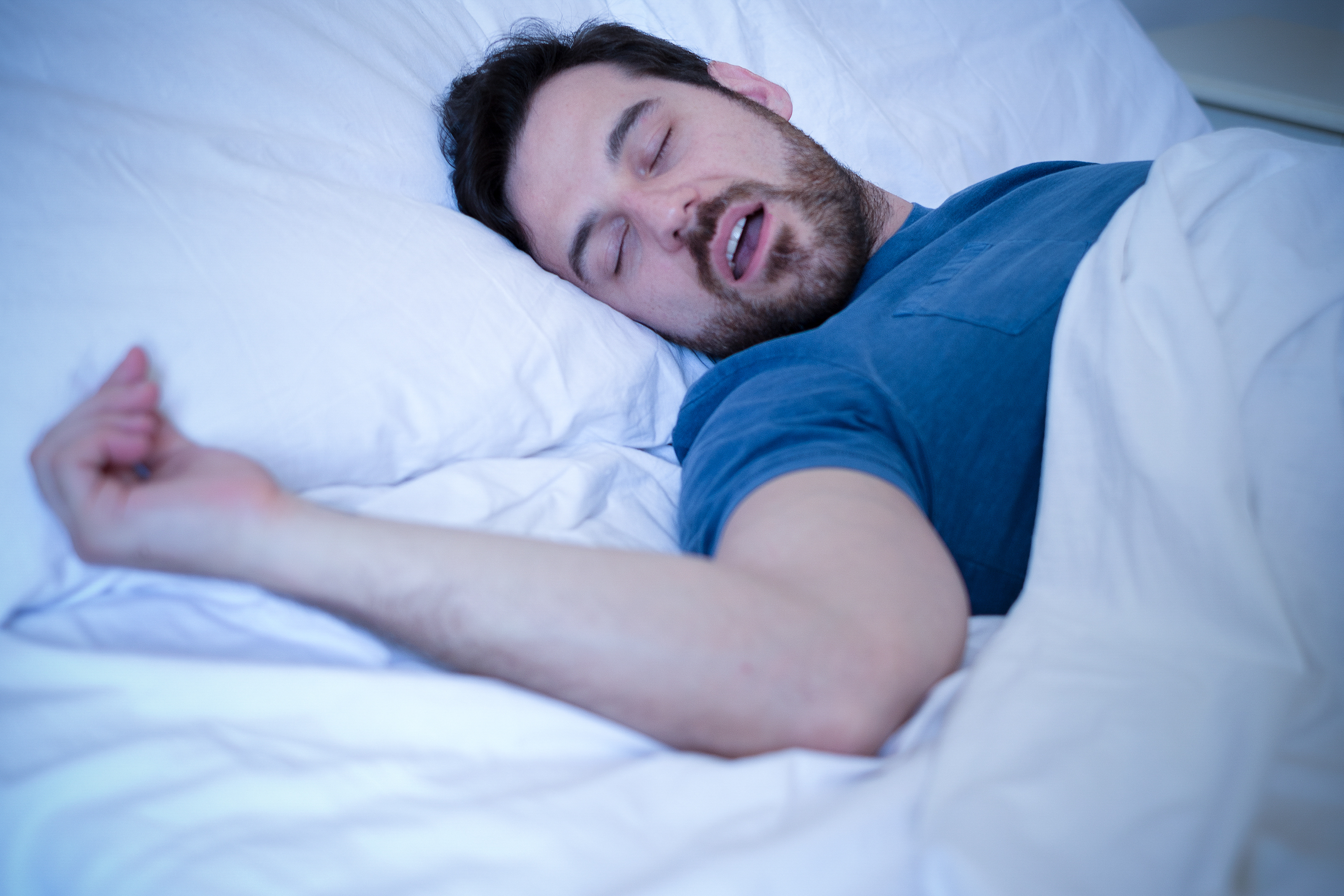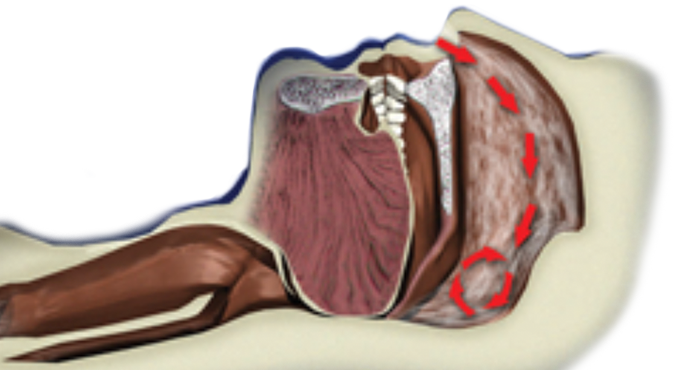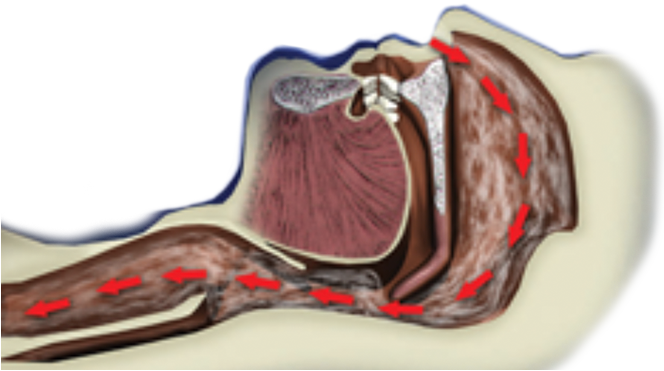SLEEP APNEA
What is Sleep Apnea?
These blockages occur when tissues in the airway relax excessively or collapse, cutting off the airway. As you try to take a breath, this obstruction prevents air from reaching your lungs, causing choking and low oxygen levels.
Pauses in breathing (apnea) repeatedly interrupt your sleep and respiration, causing poor sleep quality and contributing to daytime sleepiness and fatigue. Sleep apnea is the leading cause of excessive daytime sleepiness.
These pauses can occur 5 times per hour in mild cases and 50 to 100 times per hour in severe cases. Not only do these pauses interrupt your sleep, they can cause dangerously low oxygen levels, so appropriate treatment is necessary.

Top 5 Risks of Sleep Apnea
1. Excessive Daytime Sleepiness
Sleep apnea prevents you from getting a good night’s sleep. Although you may sleep all night, the quality of sleep is very poor, leading to daytime sleepiness and general fatigue.
2. Impaired Memory and Cognition
Sleep apnea can minimize the amount of time spent in restorative sleep. It also causes drops in oxygen levels ,resulting in poor oxygenated blood flow to the brain. This can cause neurocognitive deficits such as memory loss, inability to concentrate and generalized mental dullness.
3. Hypertension, Heart Attack and Stroke
Severe sleep apnea has been directly linked to hypertension, stroke, heart disease, diabetes and other high risk medical conditions.
4. Weight Gain
Sleep apnea can affect the body’s metabolism and cause weight gain. Sleep apnea can also cause increased fatigue and contribute to depression, making exercise and active weight loss even more difficult.
5. Snoring
Sleep apnea is often associated with severe snoring, resulting in discomfort and poor sleep for a bed partner or embarrassing situations when traveling or sleeping outside of the home.

Obstructed airway
5 Benefits of Treating Sleep Apnea
1. Increased Energy and Libido
Patients who receive effective therapy report significant increases in their energy levels. Patients are often able to exercise more aggressively, resulting in weight loss and resolution of other sleep apnea symptoms.
2. Increased Productivity
Increased ability to focus and concentrate allows for more productivity, enhancing job performance and personal relationships.
3. Better Management of Disease
Treatment of sleep apnea can significantly reduce the impact of high blood pressure, heart disease, diabetes and some neurocognitive deficits.
4. Share a Bed With Your Partner Again
Many couples report sleeping in separate rooms due to the disturbance of sleep apnea and snoring. With effective therapy, you will sleep together again.
5. A Better Nights Sleep
Your sleep will be sound and restorative with effective therapy. You will wake up feeling refreshed and have energy throughout the day.



